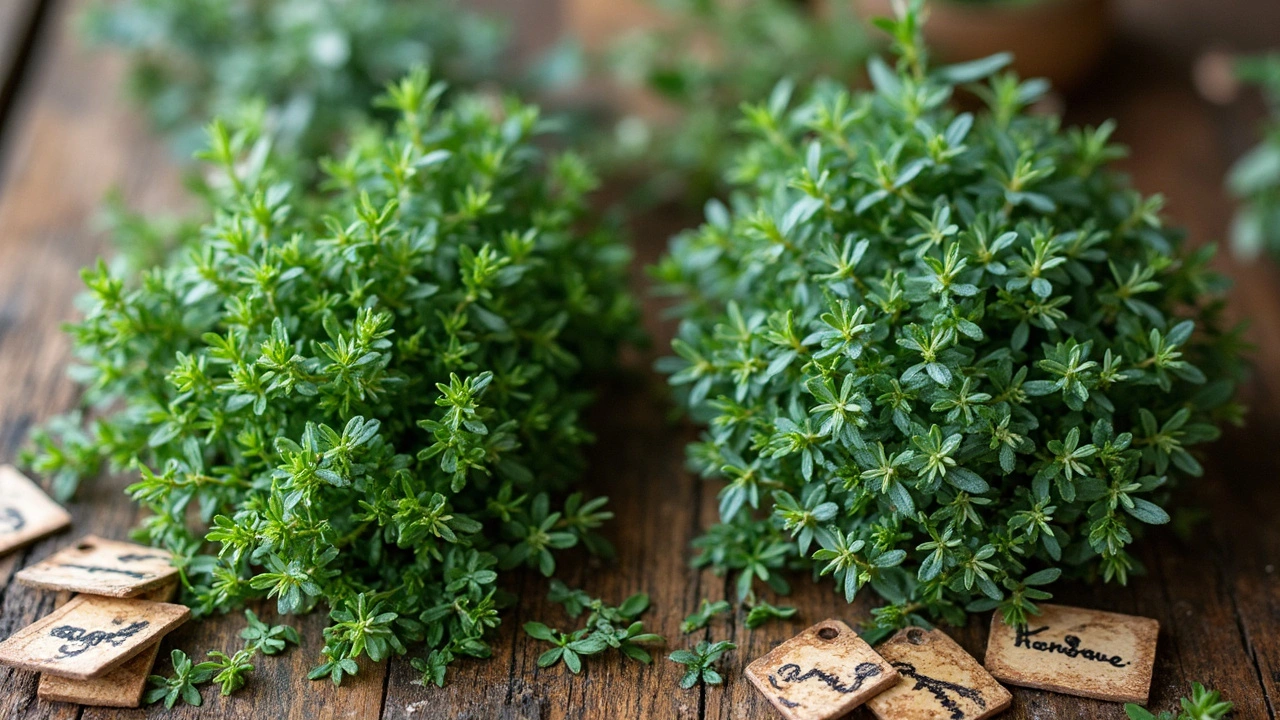Thyme Benefits: Why This Little Herb Packs a Big Punch
If you’ve ever sprinkled dried thyme over roasted veggies or simmered it in soup, you probably liked the taste. What most people miss is that thyme does more than add flavor; it can actually support your health in several ways. Below are the most useful benefits and simple ways to make thyme a regular part of your routine.
Health perks you can feel
Thyme is rich in antioxidants like thymol, carvacrol, and flavonoids. Those compounds help protect cells from damage caused by free radicals, which means less oxidative stress and lower risk of chronic issues over time. For many people, a daily cup of thyme tea or a few fresh leaves in meals can give their immune system a gentle boost.
Digestive comfort is another area where thyme shines. Its natural antibacterial properties can help keep harmful gut bacteria in check, while the spice’s mild carminative effect eases gas and bloating. If you tend to feel heavy after big meals, try adding a pinch of thyme to your cooking or brewing a short tea with a teaspoon of dried leaves.
Skin health also gets a lift from thyme. The same antimicrobial power that works in the gut can help clear minor acne or soothe irritated skin when applied as a diluted essential oil or a DIY herbal wash. Just mix a few drops of thyme oil with carrier oil and use it on problem spots.
Easy ways to add thyme to your day
Cooking is the most natural route. Toss fresh sprigs into soups, stews, or marinades. When you bake chicken or fish, rub a little olive oil, salt, pepper, and thyme before popping it in the oven. Even a sprinkle on scrambled eggs adds flavor without extra calories.
If you prefer a drink, steep 1‑2 teaspoons of dried thyme in hot water for five minutes, strain, and sip. Add honey or lemon if you like. This simple tea can be soothing before bedtime and may help with occasional coughs thanks to its mild expectorant action.
For topical use, dilute a few drops of thyme essential oil in a carrier oil such as coconut or jojoba. Apply the mix to sore muscles after workouts; many users report reduced tension and quicker recovery. Always do a patch test first to avoid irritation.
Remember that thyme is potent—using too much can be overwhelming. Start with small amounts and let your taste buds adjust. If you’re pregnant, nursing, or on medication, check with a health professional before taking large doses of thyme supplements.
In short, thyme isn’t just a garnish. Its antioxidants, antimicrobial action, and soothing qualities make it a handy herb for everyday wellness. Whether you sprinkle it on food, brew it as tea, or use it in skin care, the benefits are easy to tap into without breaking your budget.
Wild Thyme vs Common Thyme: Essential Oil Potency, Chemotype Differences, and Health Benefits Unveiled
This article uncovers the real differences between wild thyme and common thyme, going deep into their essential oil compositions, chemotypes, and how each stacks up when it comes to potency and health perks. The comparison is hands-on, with a close, detailed look at what makes these aromatic herbs tick. Expect concrete facts, clear science, and practical tips for choosing the right thyme for your needs. By exploring everything from their wild growing habits to their chemical secrets, this guide gives you all the knowledge you need to make smarter choices. Explore powerful uses, smart kitchen tips, and the truth about which thyme works best.
About
Natural Remedies
Latest Posts


Tinea Versicolor in Athletes: Prevention and Treatment Strategies
By Orion Kingsworth Jun 2, 2023

Acromegaly Self‑Care: Essential Tips for Better Management
By Orion Kingsworth Oct 23, 2025

Arrhythmia Procedures: Catheter Ablation and Device Therapy Explained
By Orion Kingsworth Dec 27, 2025

